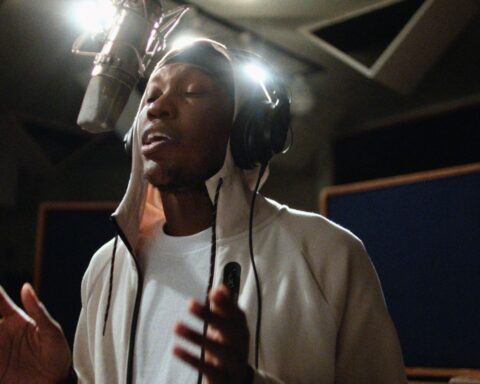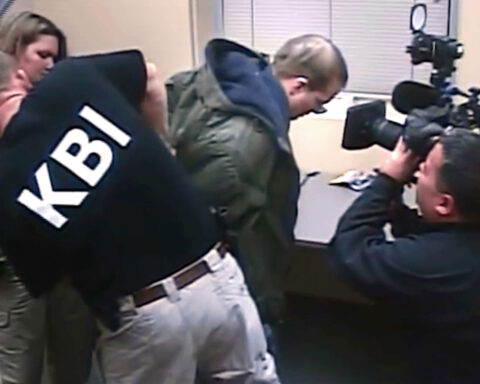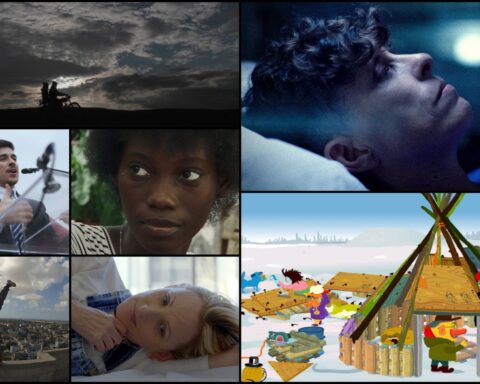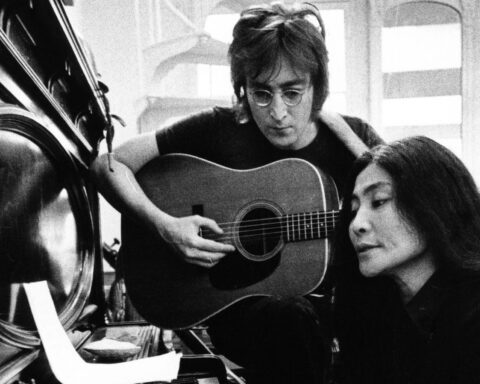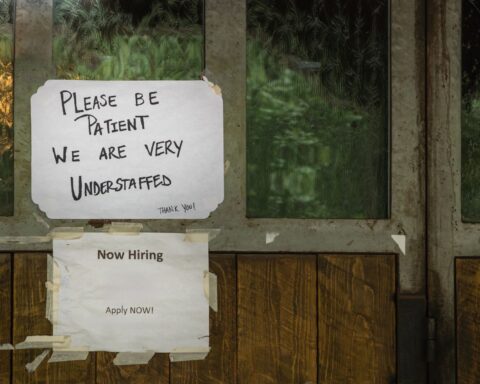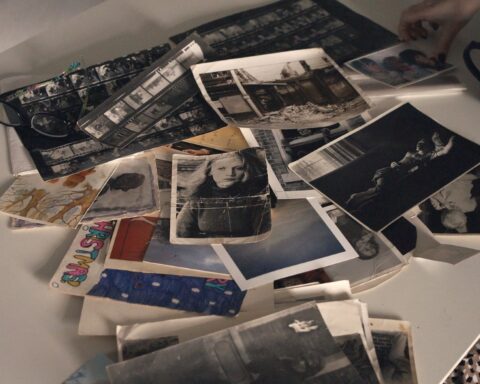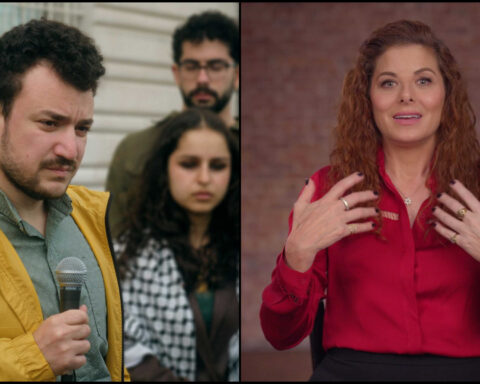In today’s ever-expanding media universe, a trusted space for independent voices matters more than ever before.
Consider this. If we average 20 hours of TV viewing per week for 50 years, we’ll spend six years of our lives in front of television. According to a recent Nielsen’s poll, when time spent on the Internet is included, we actually average 35 hours. That’s 10 years out of 50 in front of a screen. Let’s hope in that time there are moments for learning and enlightenment.
That’s the mission at Knowledge Network: to inform and educate; to broaden awareness by exploring the world as a trusted public broadcaster—because British Columbians deserve a space, free of commercial pressures, where independent voices can always be found.
Think back to September 2008, to an event that shook the foundations of public trust around the world. The collapse of the sub-prime mortgage market in the U.S. and the bankruptcy of Lehman Brothers triggered a meltdown of the global financial system. This led to an economic crisis paralleled only by the Great Depression.
What happened? Was it the failure to challenge conventional wisdom? How could so much money be invested in complex financial products that so few people understood? Why were mortgages given to those who couldn’t afford them? How did exuberant chatter in the media drown out critical voices that warned of impending crisis?
In an effort to promote economic literacy, Knowledge Network broadcast last year the anthology series Mad, Mad Money: When Greed and Fear Rule the Market. Over 14 weeks we examined the forces and players behind the near-death experience of the world’s financial system.
The anthology included Niall Ferguson’s The Ascent of Money —a primer on how the financial system works, complete with the invention of money, banking, bonds, and the common stock company. The series examined the Wall Street firms that required the largest taxpayer-funded bailouts in history. It also profiled the legendary Warren Buffett, showing why he is one of the smartest investors and richest men in the world.
How did Buffett avoid financial ruin and prosper in this time? In his words, “You can’t do well in investments unless you think independently. And the truth is you’re neither right nor wrong because people agree with you. You’re right because your facts and your reasoning are right. In the end, that’s all that counts.”
I see parallels with our programming at Knowledge. It’s our mission to encourage independent thinking so people can make the informed decisions that are essential to civil society and functioning democracy.
We’re assembling a 12-week-long anthology on economics for broadcast next year, called The Party’s Over: How the West Went Bust. The series will examine the rise of China as an economic superpower and the global impact of the European sovereign debt crisis because viewers are still deeply concerned about their jobs, mortgages and pensions.
It was in high school, in Grade 11 English class, where I found my own independent voice. That’s when I made my first film, a take on George Orwell’s 1984, a visionary novel about a totalitarian society ruled by “Big Brother.”
When that fateful year finally arrived and the predicted Orwellian nightmares had not come to pass in the free world, everyone was relieved, of course. But according to Neil Postman, a noted educator, author and media theorist, we had all forgotten that there was an earlier dark vision of the future, Aldous Huxley’s Brave New World, published in 1932.
In Postman’s 1985 book Amusing Ourselves to Death: Public Discourse in the Age of Show Business, he warned that television’s effect of turning all subject matter into entertainment would diminish us—just as Huxley had predicted. To quote Postman: “Orwell warns that we will be overcome by externally imposed oppression. But in Huxley’s vision, no Big Brother is required to deprive people of their autonomy, maturity and history. As he saw it, people will come to love their oppression, to adore the technologies that undo their capacities to think.
“Orwell feared those who would deprive us of information. Huxley feared those who would give us so much that we would be reduced to passivity and egoism. Orwell feared that the truth would be concealed from us. Huxley feared the truth would be drowned in a sea of irrelevance. Orwell feared we would become a captive culture. Huxley feared we would become a trivial culture.”
As Huxley later wrote, “civil libertarians and rationalists who are ever on the alert to oppose tyranny ‘failed to take into account man’s almost infinite appetite for distraction.’”
Today’s ever-expanding media universe seduces us with an infinite variety of distractions, from reality TV to Twitter gossip. And thanks to our mobile devices, there’s nothing to keep us from a screen anywhere or anytime.
To ensure its relevance and to continue to thrive as a trusted and meaningful destination in this largely commercial universe, in 2007 British Columbia’s Knowledge Network set out to transform the public broadcaster from a single TV station to a multi-channel media service. Today, we operate two commercial-free television channels, including the BBC Kids national specialty channel, three websites and a magazine. We’re building a high-definition channel for launch next year, and are developing apps for tablets and smart phones.
All our original content is commissioned from independent filmmakers. We commission independent documentaries on B.C. history, First Nations languages, the arts, culture, and healthcare. And all our educational programmes for young children are provided in a safe environment that is free of violence, free of sugar and free of commercials.
About a million and a half British Columbians tune in and click on to Knowledge each week because they trust Knowledge. What does it cost? Per person in the province, the B.C. government grant works out to the cost of a small cup of coffee once a year. And an ever-growing share of our funding comes from 35,000 “Knowledge Partners” who last year generously donated over three million dollars.
The great financial crisis triggered by the apparently unexpected bursting of the U.S. housing bubble in September 2008 wasn’t completely unexpected. It is critical to note that independent thinkers saw it coming.
Joseph Stiglitz, a Nobel laureate in Economics, had this to say in January 2008 at the economic forum in Davos, Switzerland: “As I and a couple of other colleagues explained how the bubble had developed and what its breaking meant, a chorus of central bankers in the front row chimed in: ‘No one predicted it,’ they claimed. That claim was immediately challenged by the same small band that had been talking about the bubble for several years. But the central bankers were, in a sense, right—no one with credibility in their circle challenged the prevailing view, [because] no one challenging the prevailing view would be treated as credible. Sharing similar views was part of being socially and intellectually acceptable.”
It’s my belief that British Columbians trust Knowledge to provide diverse points of view that challenge the way they think about current issues so they can make informed decisions. With public support, Knowledge will continue to provide a commercial-free space that connects audiences with independent thinkers and independent voices.
Viewers will spend at least six years of their lives in front of a screen. It’s our mission to ensure that some of that time is devoted to learning and enlightenment—so that we’ll not be spending all those precious years “amusing ourselves to death.”





